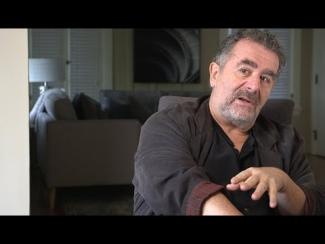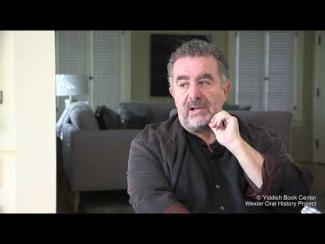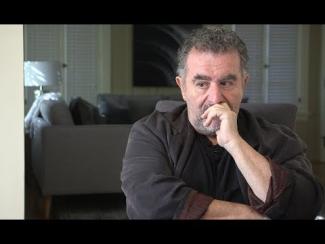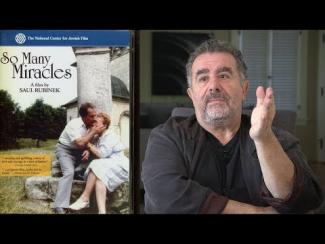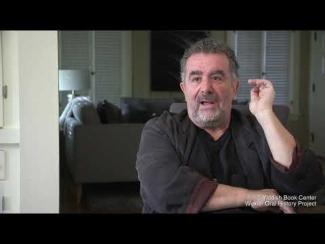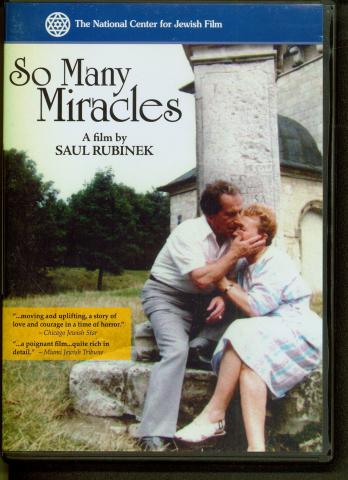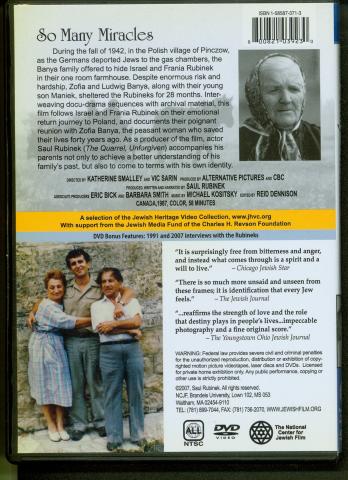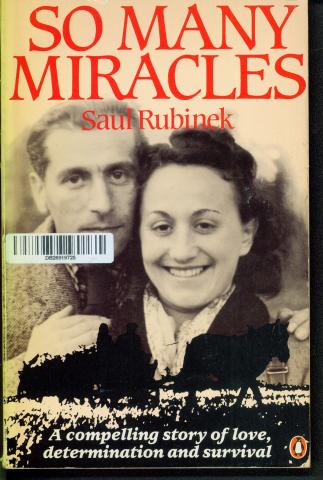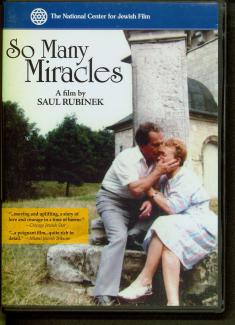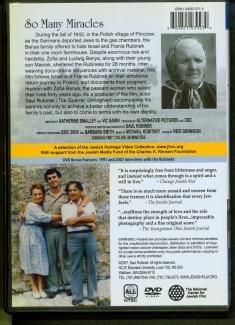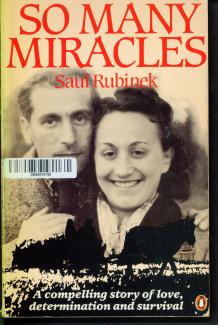The Yiddish Book Center's
Wexler Oral History Project
A growing collection of in-depth interviews with people of all ages and backgrounds, whose stories about the legacy and changing nature of Yiddish language and culture offer a rich and complex chronicle of Jewish identity.
Saul Rubinek's Oral History
Saul Rubinek, actor, was interviewed by Christa Whitney on November 29, 2017 in Hollywood, California. His father's family were Hasidim in Lodz; he rejected their traditional ways and became an actor. His mother's more secular family owned a flour mill and shoe store in Pínczów. They met and fell in love right before the Germans invaded Poland. Saul was born in 1948 in Foehrenwald, Wolfratshausen, Germany in a DP camp. His parents brought him to Montreal, Canada when he was less than a year old. Saul describes growing up alongside anti-Semitic working class French Canadian Catholic children. He spoke an unusual combination of Joual and Yiddish and understood some Polish and did not learn English until later. When Saul was six, his father got a job in Ottawa. He had difficulty adapting to this new city, so his parents sent him to drama school to find a community. He talks about two wonderful teachers who were graduates of the Royal Academy of Dramatic Arts in London and about the influence of American draft-avoiders on Canadian playwriting and theatre. Saul reminisces about growing up with parents who were grateful to be alive and did not suffer from survivor's guilt. He believes that people of whatever ethnicity or religion who have suffered genocide or similar experiences need to find others who understand them, and that a shared language such as Yiddish contributes to a sense of community. Throughout the interview, Saul tells the story of how his parents survived while so many of their family, friends, and neighbors did not. He co-produced a documentary film called "So Many Miracles" based on interviews with his parents and a trip the three made to the town where his parents had been hidden by a Polish farmer's family. The wife, Zofia Banya, offered to hide them because they had extended her credit in their grocery store. In 1986, forty years after the events in question, they received a letter from Zofia saying that she hoped to see them once more. Saul found a team and raised some money to produce a documentary film. Saul talks about some of the surprising things that happened in Poland, such as finding a Polish photographer who had taken photos of Jews being rounded up and of the town square in flames. They ran into an old school friend who put them in touch with one of Saul's mother's favorite teachers. Both school friend and teacher were shocked to see her and reacted as if she were a well-loved ghost. The highlight of the movie is the visit with Zofia, her son, and grandchildren. Her husband, who beat her and wanted to turn in the Rubineks to the Nazis, was dead. His stepson sees him as a hero, which fits with Saul's theory that families make up stories to protect their sense of self-worth. Although the Rubineks did not have much extra money, they have helped the family financially for many years. Saul's wife is Scottish and not Jewish, but his daughter and son identify as Jews. He explains how and why he decided to wait until they were young teenagers to educate them about their grandparents' experiences in Poland. He is skeptical about organizations of children of survivors who seem to be proud of their status as victims; yet he acknowledges that children whose parents dealt with significant hardship of any kind are impacted themselves. He showed his film at both of his children's schools and encouraged the students to explore their own family histories, including the traumatic events that shaped them and their relatives.
This interview was conducted in English.
Saul Rubinek was born in Föhrenwald, Wolfratshausen, Germany in 1948.

